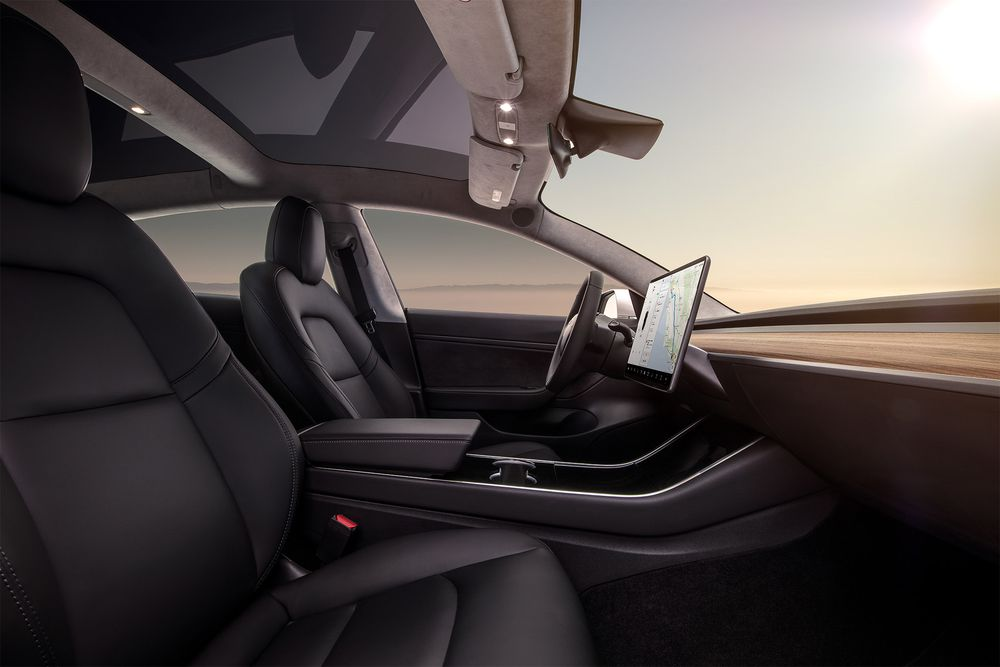In a world increasingly driven by technological breakthroughs, electric vehicles (EVs) are at the forefront of a massive transformation in the automotive industry. A recent report from Bloomberg Green highlighted that global EV sales are projected to surpass 10 million units by the end of 2023, a testament to their rising popularity. One of the key drivers behind this surge is the integration of Artificial Intelligence (AI) into EVs, fundamentally altering how we perceive and interact with these vehicles. In this article, we will explore how AI innovations are revolutionizing the future of electric vehicles, enhancing everything from battery management to autonomous driving.
The Role of AI in Electric Vehicle Development
AI-Powered Battery Management Systems
One of the most critical aspects of any EV is its battery life and efficiency. AI is playing a pivotal role in improving battery management systems (BMS). According to Battery University, AI algorithms can predict battery life cycles more accurately, optimize energy usage, and even detect potential issues before they become serious problems. This innovation not only extends the lifespan of batteries but also ensures maximum energy efficiency.
- Predictive Maintenance: AI tools can analyze historical data to predict when a battery might fail or need maintenance.
- Energy Optimization: By leveraging machine learning, AI can optimize energy consumption based on driving habits and environmental conditions.
Autonomous Driving and AI
Autonomous driving is one of the most exciting prospects in the automotive sector, and AI is at the heart of this innovation. Companies like Tesla and Waymo are utilizing AI to develop self-driving technologies that could significantly reduce traffic fatalities and improve urban mobility.
- Real-time Data Processing: AI systems can process vast amounts of data from cameras, sensors, and LIDAR to make real-time decisions.
- Enhanced Safety Features: AI can predict and respond to potential hazards faster than human drivers, enhancing overall safety.
AI in Manufacturing and Design
AI is not just limited to the operational aspects of EVs; it is also transforming manufacturing and design processes. Brands like Volkswagen and Hyundai are investing heavily in AI to streamline production, reduce costs, and innovate faster.
- Smart Manufacturing: AI-driven robotics and automation improve precision and reduce waste in manufacturing processes.
- Design Optimization: AI algorithms can simulate and test various design configurations to find the most efficient and aesthetically pleasing solutions.
How AI Enhances the EV User Experience
Intelligent Infotainment Systems
Modern EVs are equipped with intelligent infotainment systems powered by AI, providing a seamless and personalized user experience. These systems can learn drivers’ preferences over time, offering personalized recommendations for music, navigation, and even climate control.
- Voice Recognition: Advanced AI voice recognition allows for hands-free operation, enhancing safety and convenience.
- Personalized Recommendations: AI can suggest routes based on traffic patterns or recommend charging stations when battery levels are low.
AI and Charging Infrastructure
Charging infrastructure is a significant concern for EV adoption, and AI is helping to address this issue. With smart charging networks, AI can optimize the distribution of energy, reduce wait times, and even predict the best times to charge.
- Dynamic Pricing Models: AI can analyze demand patterns to implement dynamic pricing, encouraging off-peak charging and balancing the grid load.
- Predictive Analytics: AI can forecast charging infrastructure needs, guiding where new stations should be built based on usage patterns.
Practical Tips for Embracing AI-Driven EVs
How to Choose the Right AI-Enhanced EV
When selecting an AI-driven EV, consider the following factors:
- Autonomy Level: Check the vehicle’s level of autonomy, ranging from basic driver assistance to full self-driving capabilities.
- Battery Management Features: Look for AI-powered BMS that offer predictive maintenance and energy optimization.
- Infotainment System: Ensure the vehicle’s infotainment system supports voice recognition and personalized settings.
Where to Experience AI Innovations in EVs
- Tesla Showrooms: Experience Tesla’s Autopilot and Full Self-Driving features firsthand.
- Volkswagen Dealerships: Explore VW’s AI-driven ID.4 model and its smart features.
- Hyundai Retailers: Learn about Hyundai’s AI-enhanced safety features and intelligent infotainment systems.
Conclusion: The Road Ahead
AI innovations are undeniably transforming the future of electric vehicles, making them smarter, safer, and more efficient. As AI continues to evolve, we can expect even more groundbreaking developments in the EV sector. Whether it’s through advanced battery management, autonomous driving, or smart manufacturing, AI is set to drive the next wave of automotive innovation.
Are you ready to embrace this exciting future? Share your thoughts and experiences with AI-driven EVs in the comments below. As we look forward, it’s clear that the convergence of AI and EV technology will not only redefine personal mobility but also pave the way for a more sustainable and intelligent transportation ecosystem.

